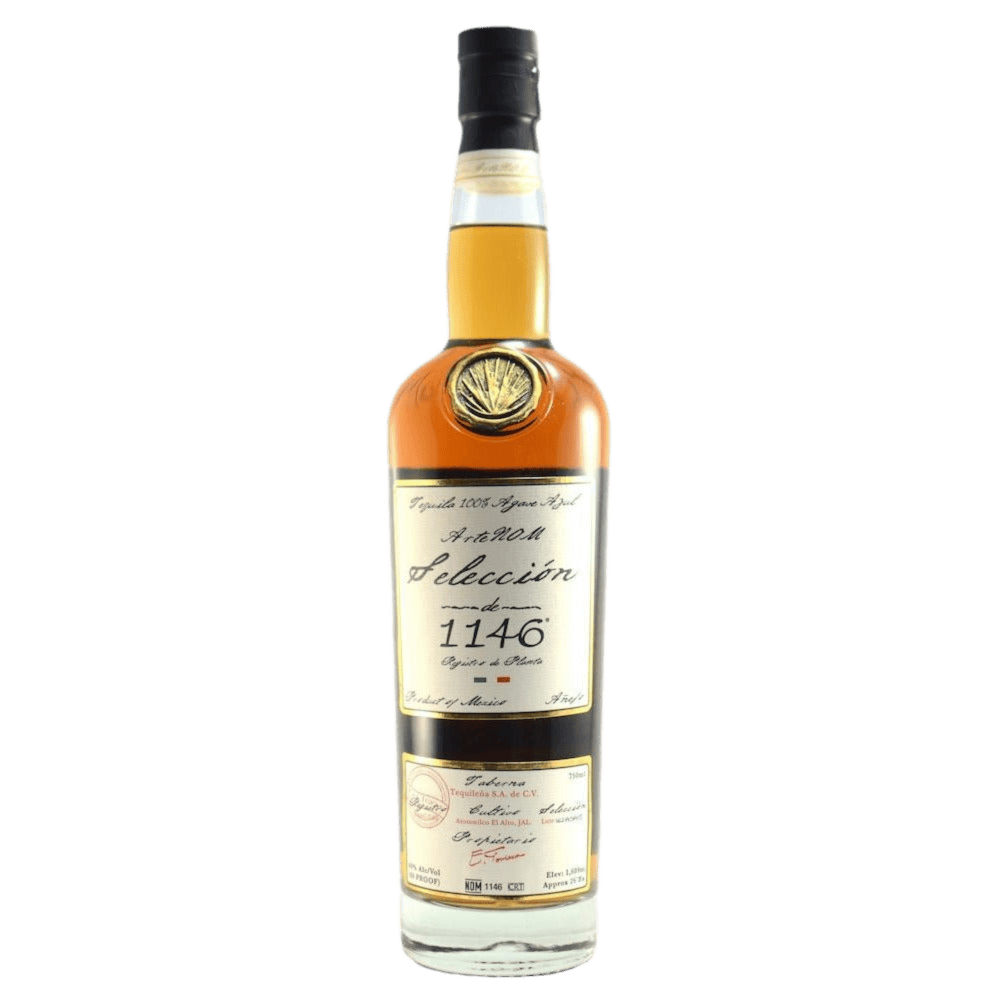
ArteNOM Selección de 1146 Añejo Tequila 100% de Agave Azul - 750ML
Experience the Essence of ArteNOM Selección de 1146 Añejo Tequila
Immerse yourself in the exquisite craftsmanship of ArteNOM Selección de 1146 Añejo Tequila, where tradition harmonizes with innovation. This premium tequila is meticulously produced from 100% Blue Agave Azul, guaranteeing a rich and authentic flavor that distinguishes it from the rest.
Product Highlights:
- Type: Añejo Tequila
- Volume: 750ML
- Finish: A harmonious blend of rich oak with subtle hints of sweet vanilla
Flavor Profile:
Delight your palate with a complex array of flavors:
- Toasted almonds
- Creamy vanilla
- Layers of dried fruit
- Baking spices
Craftsmanship:
Each bottle is a testament to the dedication of master mezcalero Enrique Fonseca, who skillfully ages this tequila in former cabernet franc wine casks from the Loire Valley, followed by further maturation in American white oak barrels. This meticulous aging process results in a flavor profile that is both bold and refined, making it a truly exceptional spirit.
Indulge in Luxury:
Enhance your gatherings and indulge in the luxurious experience of ArteNOM Selección de 1146 Añejo Tequila. Elevate your celebrations with a touch of sophistication and savor the richness that this fine tequila has to offer.

Explore a World of Spirits and Liquor through our Comprehensive FAQ Section.
Discover a World of Spirits and Liquor in our Helpful FAQ Section.
Types of Spirits
- Whiskey: Made from fermented grain mash and aged in wooden casks.
- Vodka: Typically distilled from grains or potatoes and known for its clear, neutral flavor.
- Rum: Produced from sugarcane byproducts like molasses or sugarcane juice.
- Tequila: Made from the blue agave plant, primarily in the area surrounding Tequila, Mexico.
- Gin: Distilled with botanicals, primarily juniper berries, giving it a distinctive flavor.
Production Process
- Fermentation: The process where yeast converts sugars into alcohol.
- Distillation: Separating alcohol from the fermented mixture to increase its concentration.
- Aging: Storing spirits in barrels to develop flavors over time.
Tasting and Pairing
- Tasting Notes: Learn to identify different aromas, flavors, and textures.
- Food Pairings: Discover which spirits complement various dishes, enhancing the dining experience.
Cocktails and Mixology
- Classic Cocktails: Recipes and techniques for making popular drinks like the Old Fashioned, Martini, and Mojito.
- Mixology Tips: How to balance flavors and create your own cocktail recipes.
History and Culture
Origins: The historical background of different spirits.
Cultural Significance: How spirits are enjoyed and celebrated around the world.

